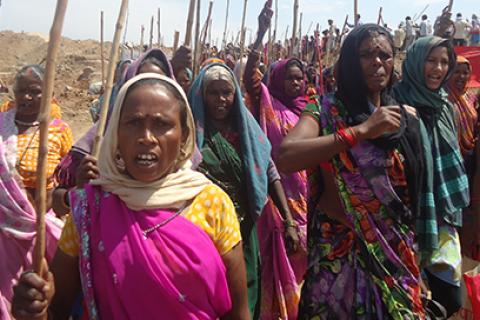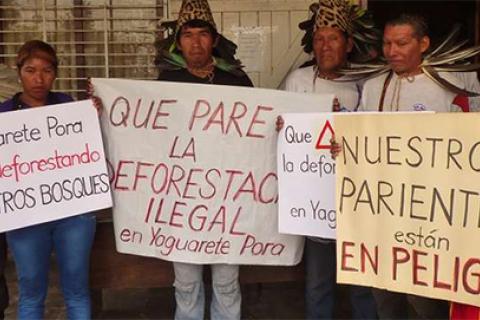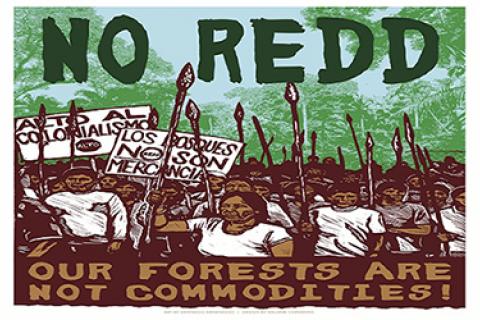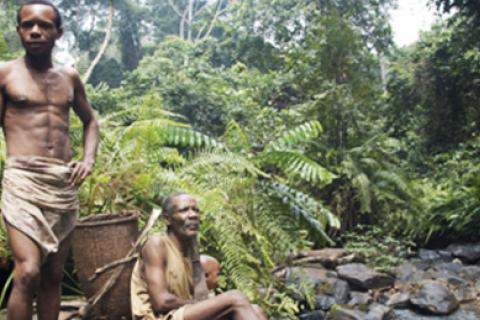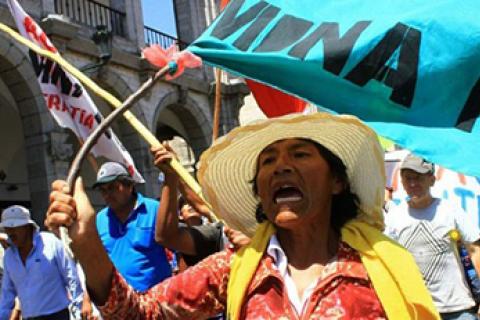In Madagascar, a big island of 587 000 km2 in the Indian Ocean famous for its exceptional biodiversity and for its subsoil wealth in minerals, more than 6 million hectares nowadays are classified as protected areas for nature conservation. Yet, mining areas are also numerous and expanding. These two kinds of spaces are sometimes close or superimposed.
Bulletin articles
Reseau CREF (Network for Conservation and Rehabilitation of Forest Ecosystems) is a platform of organizations working on governance of natural resources in the province of North Kivu. Among others, it intervenes in the governance of the mining sector through its program “Mines and Hydrocarbons”.
Context of the province of North Kivu, Democratic Republic of Congo
Indigenous Ayoreo protesting against inaction of the Government on illegal deforestation. © GAT
Paraguay is currently the location of a far from ordinary regional meeting. Experts from Bolivia, Brazil, Ecuador, Colombia and Peru gathered on July 28 to discuss the critical situation posed by increasingly frequent sightings of indigenous peoples in isolation and its consequences.
It’s no news that extractive projects throughout Latin America have imposed a model of extraction and export that reaches ever deeper. The race for attracting investments from the mining, oil, forestry and fishery industries is a feature of most countries in the region. However, the extractive industry sparks increasingly strong criticism and resistance from several sectors of society, including academia, human rights organizations and social movements.
Currently, the mining sector is one of the main engines of the world´s economic system. In several countries, expropriation cases from native populations are recurrent, including loss of territory, disintegration of community solidarity bonds, pollution of territories and water sources, exploitation of workers, and criminalization of groups who dare to withstand large corporations.

